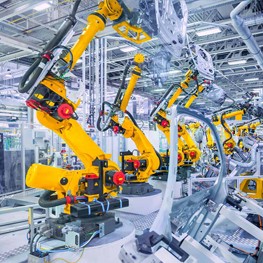
This course provides a deep dive into the functionalities of Autodesk Fusion 360, a cutting-edge cloud-based software that seamlessly integrates 3D parametric modeling, simulation, and computer-aided manufacturing (CAM).
Tailored specifically for professionals in the industrial sector, this course aims to equip participants with the essential skills needed to excel in industrial mechanical design projects. In today’s competitive landscape, mastering the complexities of industrial mechanical design is crucial for engineers aiming to stay ahead.
The course starts by introducing participants to the fundamentals of Fusion 360, emphasizing its collaborative features and cloud-based capabilities. As industrial processes increasingly rely on digital tools, Fusion 360 stands out for its versatility in design, analysis, and manufacturing, making it an indispensable asset for engineers in the modern industrial setting.
Participants will learn to create and manipulate 3D models of industrial components with precision,
using advanced features such as fillets, chamfers, and assemblies.
The importance of these skills lies
in their direct applicability to real-world industrial projects, where accuracy and efficiency are paramount.
INSTRUCTORS:

NGENZI J.F Regis
TRAINER / MEP ENGINEERING DEPARTMENT
From conceptualizing designs to refining them through iterative processes, participants
will gain the expertise needed to navigate complex industrial design challenges.
Simulation and analysis are integral components of the course, addressing the critical need for engineers to validate their designs before they hit the production floor. By delving into static stress analysis and thermal simulations tailored for industrial applications, participants will be equipped to optimize designs for structural integrity and thermal performance.
This results-driven focus ensures that the skills acquired in the course translate directly into tangible improvements in industrial design outcomes. The inclusion of CAM modules further enriches the course, allowing engineers to generate toolpaths and simulate machining operations relevant to industrial manufacturing processes.
This practical approach bridges the gap between design and production, preparing participants to contribute seamlessly to the entire product development lifecycle. The course’s emphasis on generative design, project workshops, and a final capstone project adds a collaborative and project-based dimension to the learning experience. Participants will not only master the tools but also apply them to real-world industrial scenarios.
Here is what you can expect at the of this training:
This training offers a myriad of benefits for participants, equipping them with valuable skills and insights that are directly applicable to the demands of industrial or mechanical engineering. Here are the key benefits:
1. Participants will gain comprehensive mastery of Autodesk Fusion 360, a leading cloud-based software, providing them with a competitive edge in industrial design.
2. The course focuses on industrial applications, ensuring participants acquire skills specifically tailored for designing components and systems within an industrial context.
3. Participants will learn to seamlessly integrate design and manufacturing processes using Fusion 360’s CAM capabilities, streamlining the entire product development lifecycle.
4. The training includes hands-on experience in simulating static stress, thermal analysis, and other critical simulations, enabling participants to validate and optimize designs for real-world industrial scenarios.
5. Participants will become proficient in parametric modeling, creating precise 3D models of
industrial components and assemblies, with a focus on efficiency and accuracy.
6. The course covers CAM functionalities, allowing participants to generate toolpaths for CNC machining, a crucial skill for industrial manufacturing processes.
7. Participants will gain expertise in generative design principles, enabling them to explore
innovative design solutions and optimize designs based on specific constraints.
8. Through project workshops and a final capstone project, participants will apply their skills to real-world industrial design challenges, building a portfolio that showcases their practical expertise.
9. Participants will learn to create engineering drawings and documentation adhering to industry standards, a critical aspect of effective communication in industrial design.
10. Acquiring advanced skills in industrial mechanical design using Fusion 360 opens up new career opportunities and positions participants as valuable assets in industries such as aerospace, automotive, machinery, and consumer goods.
11. Staying updated on industry trends and Fusion 360 certifications ensures that participants remain adaptable to the evolving landscape of industrial engineering.
Who should attend this training:
The “Industrial Mechanical Design Using Fusion 360” training is tailored for a diverse audience of professionals in the mechanical and industrial engineering domains. This course is ideal for individuals who are:
Mechanical Engineers: Mechanical engineers seeking to enhance their skills in industrial mechanical design, particularly in utilizing advanced software tools like Fusion 360.
Industrial Engineers: Industrial engineers aiming to broaden their expertise in designing components and systems within an industrial context.
Design Engineers: Design engineers who want to master Fusion 360 for creating precise and efficient designs applicable to industrial manufacturing processes.
Manufacturing Engineers: Manufacturing engineers interested in seamlessly integrating design and manufacturing processes using Fusion 360’s CAM capabilities.
Product Development Professionals: Professionals involved in product development who want to enhance their ability to design industrial components with a focus on real-world applications.
Engineering Graduates: Students graduating degrees in mechanical or industrial engineering and looking to acquire practical skills relevant to industrial settings.
CAD Professionals Transitioning to Fusion 360: CAD professionals using othersoftware platforms who wish to transition to Fusion 360 for its advanced capabilities in industrial mechanical design.
Project Managers and Team Leads: Project managers and team leads overseeing engineering projects who want to understand the design process better and contribute more effectively to project planning and execution.
The hands-on and results-driven nature of the course ensures that participants can apply the acquired skills directly to their work, making it valuable for anyone involved in or aspiring to be part of the industrial mechanical design landscape.
